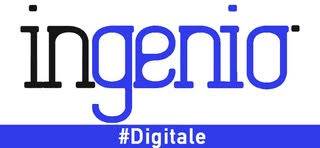Suppose you could replace "Made in China" with "Made in my garage."
Immaginiamo di poter sostituire il "Made in China" con "Made in mio garage".
FONTE: http://www.sciencedaily.com/
Suppose you could replace "Made in China" with "Made in my garage." Suppose also that every time you polished off a jug of two percent, you would be stocking up on raw material to make anything from a cell phone case and golf tees to a toy castle and a garlic press.
And, you could give yourself a gold medal for being a bona fide, recycling, polar-bear-saving rock star.
Michigan Technological University's Joshua Pearce is working on it. His main tool is open-source 3D printing, which he uses to save thousands of dollars by making everything from his lab equipment to his safety razor.
Using free software downloaded from sites like Thingiverse, which now holds over 54,000 open-source designs, 3D printers make all manner of objects by laying down thin layers of plastic in a specific pattern. While high-end printers can cost many thousands of dollars, simpler open-source units run between $250 and $500 -- and can be used to make parts for other 3D printers, driving the cost down ever further.
"One impediment to even more widespread use has been the cost of filament," says Pearce, an associate professor of materials science and engineering and electrical and computer engineering. Though vastly less expensive than most manufactured products, the plastic filament that 3D printers transform into useful objects isn't free.
Milk jugs, on the other hand, are a costly nuisance, either to recycle or to bury in a landfill. But if you could turn them into plastic filament, Pearce reasoned, you could solve the disposal problem and drive down the cost of 3D printing even more.
So Pearce and his research group decided to make their own recycling unit, or RecycleBot. They cut the labels off milk jugs, washed the plastic, and shredded it. Then they ran it through a homemade device that melts and extrudes it into a long, spaghetti-like string of plastic. Their process is open-source and free for everyone to make and use at Thingiverse.com.
Continue: www.sciencedaily.com/releases/2013/03/130301153645.htm
